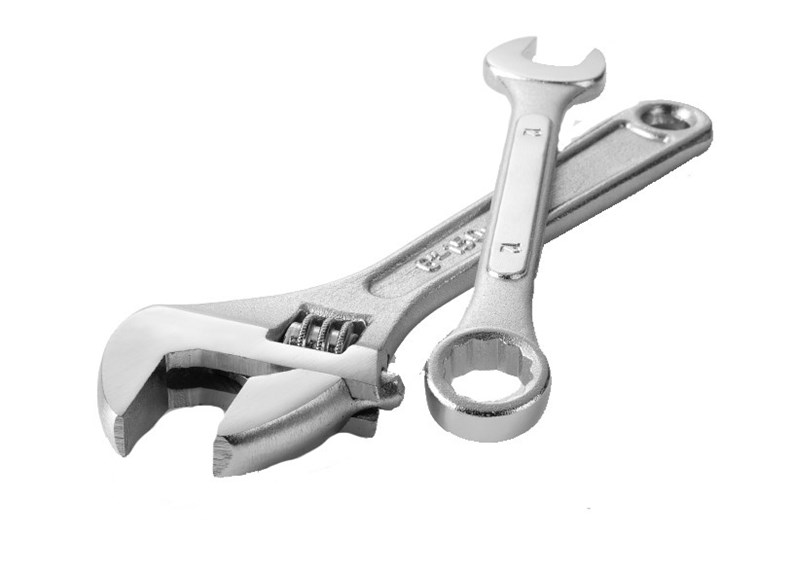Every home has its own foibles, its own creaks and sounds that we, as its inhabitants, know so well. We know that our ovens run a little hot or that our clothes washers need a little kick in the middle of the spin cycle to keep them going. That knowledge shows that we understand our homes and know when they're "healthy" and when they're not. Expand that base of knowledge ten—fold and you'll begin to understand the multitude of things a property manager needs to know about the residences for which he or she is responsible.
To alter the metaphor just a bit, "The manager is the captain of the ship," says Alfred Ojejinmi, regional director of The Wentworth Group management firm, and president elect of the New Jersey chapter of the Institute of Real Estate Management (IREM). As the captain, the manager shoulders significant responsibility and a large portion of that responsibility centers on preserving and protecting the operating systems that keep individual units and common areas functioning smoothly, cleanly and efficiently.
A good manager "needs a familiarity with each of the systems (in his building) and a good solid knowledge of how each of those systems works," says Paul L. White, president of the Paul L. White Association in Miami and a member of IREM.
The Need to Know
White believes firmly in preventative maintenance. By having a good understanding of how the HVAC systems, boiler systems or other major operational components work in their properties, managers can end up saving the association significant sums of money. If they don't know what's going on with the systems, "it will become very costly," White says. With proper maintenance, a building's cooling system, for example, can see its life expectancy reduced by almost 20 years. "Cheap management can be costly," says White.
Part of that preventative maintenance involves proper monitoring. Along with the superintendent, the manager should inspect the building on a regular basis, preferably once a month, says Irwin Chopak, RAM, NYARM, property manager with the firm of JAL Diversified Management Corp., based in Brooklyn, New York. "It's a lot easier to lubricate something than replace something that burns out," he says. Major systems such as the heating system should be inspected by a qualified engineer every two to three years, checking on things like vacuum pumps, traps and other key components.
"Most managers today are coming out of school taking these jobs because they're available," Chopak says. Many entry-level managers do not have the kind of training they need to understand and direct the maintenance of increasingly complicated operating systems. "They have to know the operating procedures, know the preventative maintenance and the ongoing maintenance procedures," Chopak says.
Beyond preventative maintenance, "The focus should be on educating people to keep their [physical] plants away from a state of deferred obsolescence," Chopak says. That state of deferred obsolescence arises when problems either are not recognized as significant or are not taken care of when they first arise.
Chopak cites the example of a roof. One day it starts leaking. A roofer is called. He tells the manager that the repairs will cost $5,000. A decision is made to only fix the most dire part of the problem and the roofer is asked to do only $2,000 worth of work. Plans are made to save and pay for the rest of the work the next summer. Except when the roofer comes back, the roof needs even more repairs and the price has gone up. Again, he is asked to only repair what the association can afford.
The end result? "After five, six or seven years, the roof looks like a gathering of postage stamps, and it still leaks," Chopak says. "You have to stop deferred obsolescence. You have to make sure the money is in place for the right things."
Having a well-trained manager who can look at the roof and see when or where problems might arise in the future can ensure that the association squirrels away enough money to address those problems fully. Repairs should be made when repairs need to be made. "Co-ops and condos don't always think that way," Chopak says. "Sometimes they're afraid to assess."
A manager who knows the ins and outs of his or her building also will be able to prevent problems by speaking the same language as the superintendent or outside contractors or engineers who are brought in to assess problems. "Knowledge shows that the manager is interested in the building," says Ojejinmi. "The manager will be able to talk to the board with technical knowledge rather than relying on a contractor. And the manager will know if the super [or contractors] are being factual."
A well-informed manager also shows residents that the people in charge are responsive to their concerns. It helps unit owners to be able to talk directly with a manager who will understand what's at the root of the heat problem in their living room or why the air conditioning might not be working. "It amounts to excellent customer service," says Ojejinmi.
Having a manager who is on top of things "is almost common sense," Chopak says. "People live in these buildings. They don't want any problems. [Good maintenance and management] keeps people happy."
Where's All That Knowledge Coming From?
Few of us are born with an innate sense of how a boiler works or how those elevators function. Luckily, managers have a wealth of options available to them when it comes to learning the ropes of a building's operating systems. One of the best resources are the folks who know the building perhaps better than anyone else: the super. "Supers learn from each other and from mechanics," Chopak says. A manager can learn an enormous amount from his or her "man on the ground," so to speak.
A manager will rely the most on "his chief of maintenance—whether it's the building engineer or the super," White says. "He'll be the first person to see the symptoms of a problem. He can advise and also check on whether or not the vendors are doing their jobs." By soaking up that knowledge, the manager and super can develop a strong relationship, one in which they can mutually support the other and watch each other's backs when it comes time for major repairs or to bring outside contractors into the mix.
Passing on knowledge from manager to manager and within the management firm itself is another way to help guarantee quality operational system care. "We have a lot of experience, and we supervise and help the new guys," Chopak says. "We go out to the buildings with them, and we check each other."
Beyond "on-the-job training," a wide variety of professional organizations, including IREM, offer intensive courses to help get managers up to speed. "IREM offers property maintenance, risk management and other courses," White says. The most recent course on property maintenance and risk management ran two days while a course on Property Operations ran four days. These courses are "very concentrated," White says.
The Building Owners and Managers Association (BOMA) also offers courses. They give an overview of how specific systems work and how they are maintained. The New York Association of Realty Managers (NYARM) also offers classes. Superintendent classes are open to property managers as well and provide in-depth instruction on anything and everything related to the mechanics of building operations.
Gaining an initial understanding of operating systems, however, is not enough these days. As technologies change and evolve, so too must the knowledge of each building's manager. It is important to take refresher classes, White says. "It's amazing how things can change."
Ojejinmi agrees. "I'm a firm believer in continuing education," he says. "People should go for refresher courses to make sure they're on top of their game."
Knowing When to Ask for Help
Part of being a good manager when it comes to the technical side of the building is knowing when to ask for help. "No manager knows everything," Chopak says. "You need to use a burner specialist if you suspect problems with your burner." Specialists and consultants are part of the formula for successful operating system management. "You need watchdogs," Chopak says.
A manager, however, cannot rely on those watchdogs to answer all the questions or, most importantly, make all the decisions. It just underscores the importance of knowing all the details on how a system works.
For example, the elevator maintenance expert cannot always be relied upon to tell you when the big repairs or replacements need to be made. If that person's job is to make repairs, they may feel the system can go on with repairs alone. A knowledgeable manager will know whom to consult when big overhauls or replacements must be made in order to protect residents and prevent a drain on the association's finances.
As with any profession, the more a person knows, the better they will be able to serve their clients and customers. For property managers, that knowledge can improve the lives of the individuals and families who live under the roofs for which they are responsible. Knowing how to maintain the boiler, knowing how to make the HVAC system run smoothly, knowing when an electrical system or fire alarm system need to be upgraded are all key to ensuring the safety, well-being and happiness of residents. It's a tall order, but with all of the educational options available, it's not an insurmountable one. Best of all, that education will pay off in the long run—for everyone involved.
Liz Lent is a freelance writer and a frequent contributor to The New Jersey Cooperator.







Leave a Comment